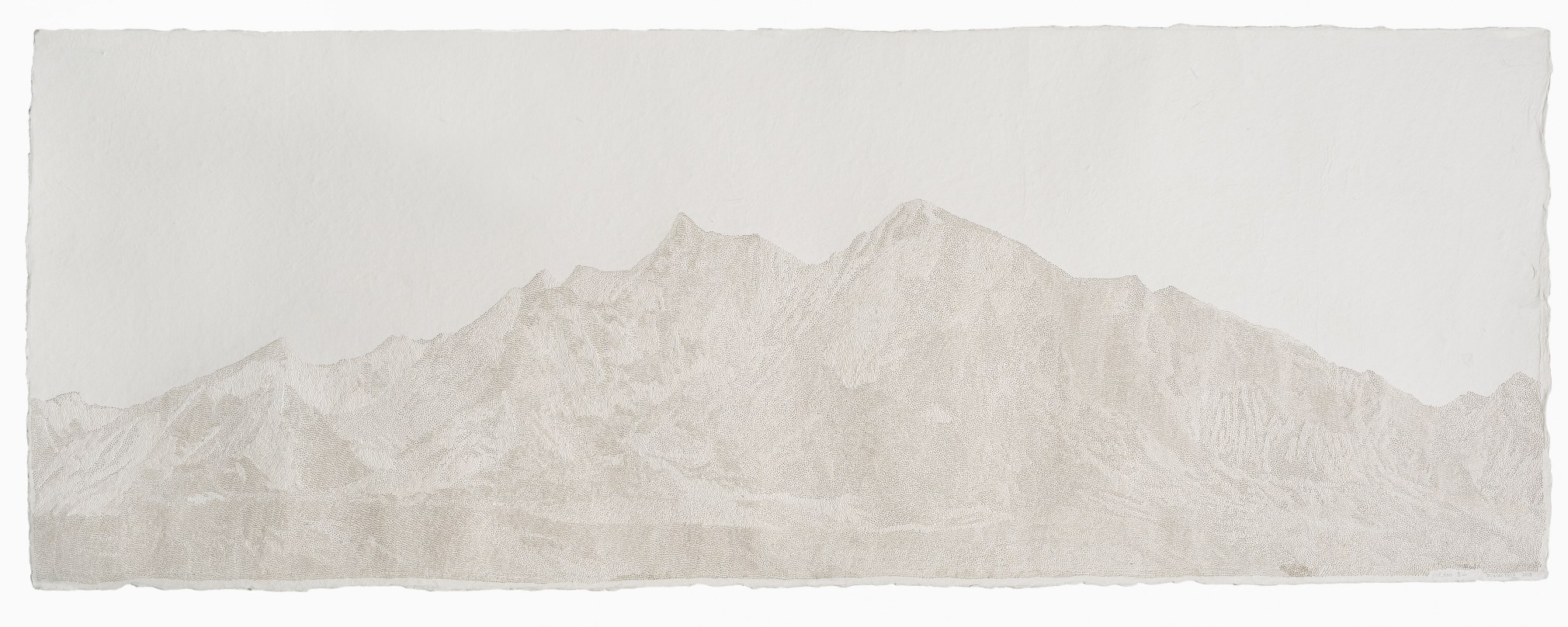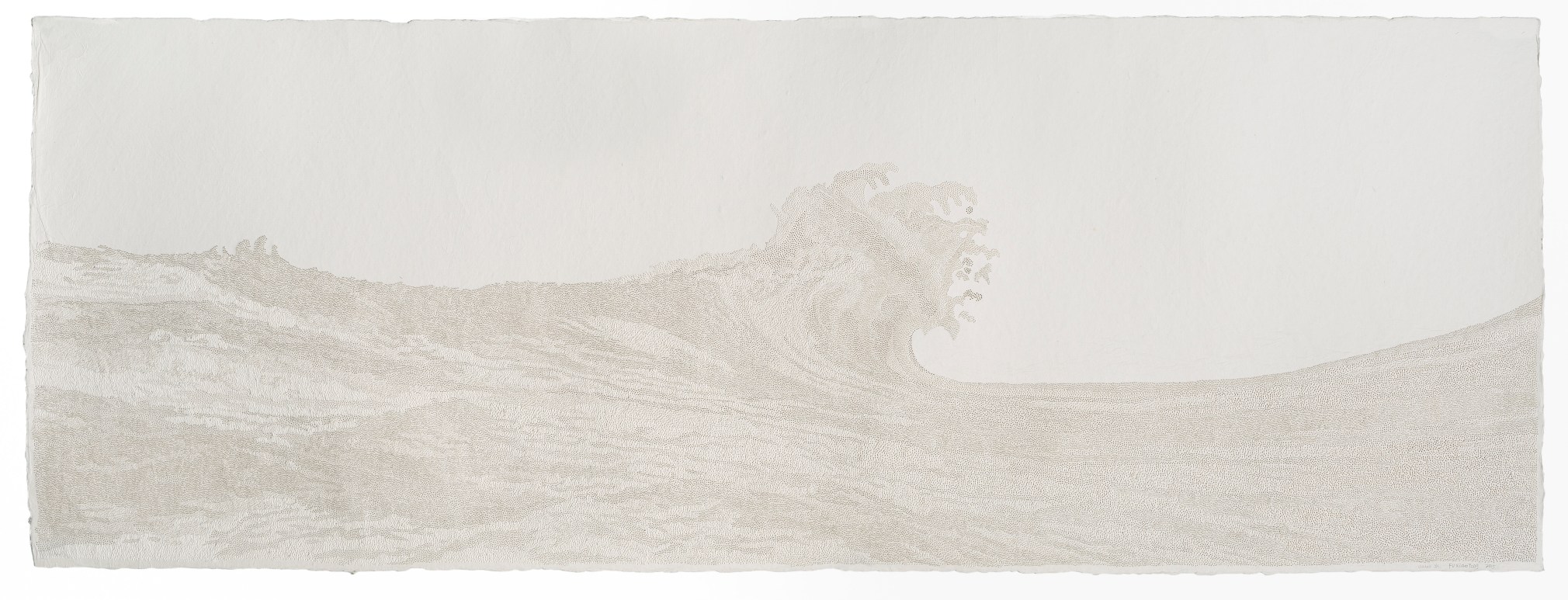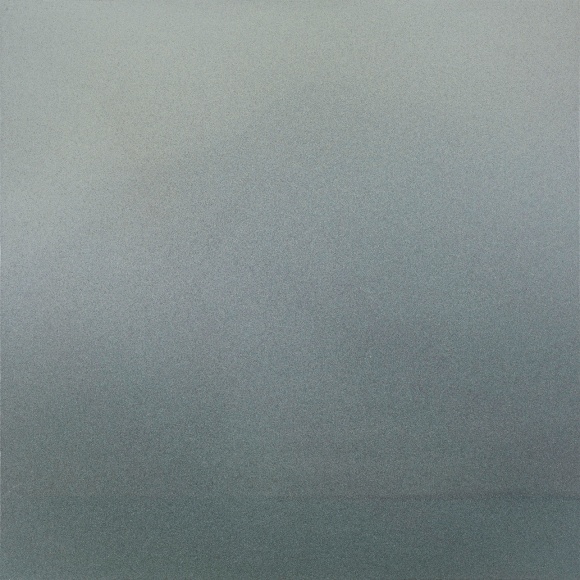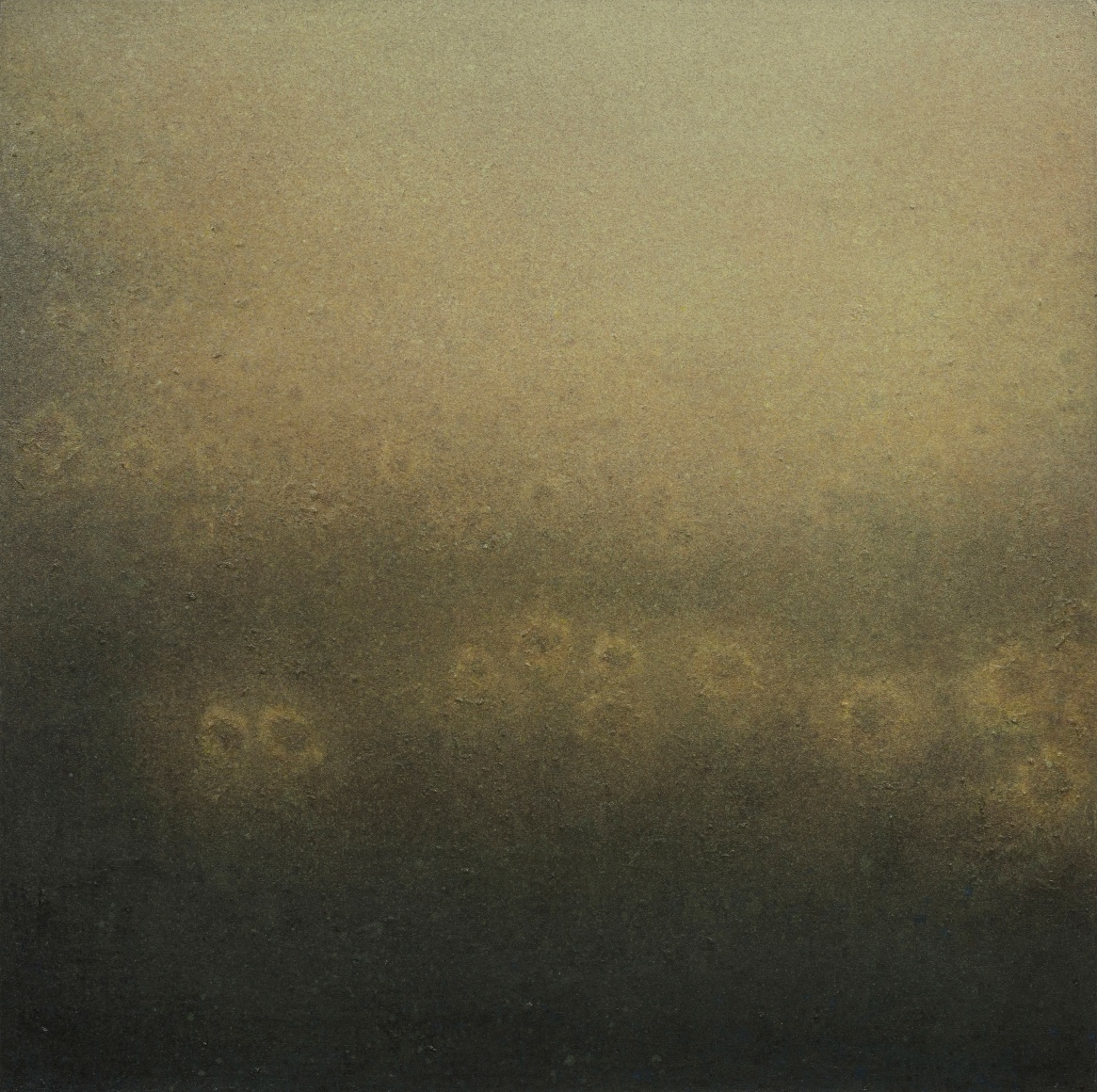Chambers Fine Art is pleased to announce the opening on May 2 of Land of Serenity: Fu Xiaotong and Wang Fengge. This will be the first solo exhibition by both artists at the gallery. Although there is a fundamental difference of approach in the technical aspect of their respective oeuvres, they both respond to the Chinese tradition of landscape painting although in fundamentally different ways.
Born in Shanxi in 1976, Fu Xiaotong received her BA in Fine Arts from the Tianjin Academy of Fine Arts, Tianjin in 2000. After working at the Institute of Fine Arts, Hebei United University, she received her MA in Fine Arts from the Department of Experimental Art, China Central Academy of Fine Arts, Beijing in 2013. For Fu Xiaotong, it is the overwhelming majesty of mountain ranges and the ocean that challenges her ability to convey their meaning on a flat surface. To accomplish this, she utilizes a seemingly counter-intuitive approach, choosing thick sheets of Xuan paper, the traditional support for Chinese painting through the centuries, which she perforates with a needle.
The needle is traditionally used for the feminine pursuit of embroidery but for Fu Xiatong it becomes the implement with which she perforates the sheets of paper she uses for her works many thousands of times. She has described the way in which thousands of pinholes made in different directions are brought together to form shapes of mountains, waves and patterns inspired by other forms of nature.
With her needles she damages the integrity of the surface of the paper but in doing so creates a new energy in which forms emerge from the angles at which light strikes the paper. Seen close to, the surface of the paper resembles that of a densely-worked tapestry in which abstract patterns are created from a limited range of shades of white. See from afar, these closely interlocking shapes are seen to have been inspired by changes of terrain in mountain ranges as they reach to the sky.
Born in Shaanxi in 1982, Wang Fengge graduated from the China Central Academy of Fine Arts in 2009 and completed advanced studies from the same institution in 2011. Unlike Fu Xiaotong who has perfected a new technique, Wang Fengge continues to paint in oil on canvas although she admits to a deep respect for classical Chinese brush and ink painting. In her case, however, she achieves effects of comparable subtlety through multiple layers of closely related hues applied in small touches that derive ultimately from Pointillism, the 19th century French art movement whose most important exponent was Georges Seurat.
Based on details of landscapes and buildings that she reduces to nearly abstract configurations, her paintings hover on the borderline between realism and abstraction without ever settling firmly in either camp. In the same way that her subdued patches of color are always in the process of defining themselves clearly, her compositions defy easy classification. What is it that we are seeing? Is it a man-made or a natural form? When recognizable elements do appear, they are bathed in a penumbral light that could be early morning or dusk. This preference for working at the outer limits of perceptibility is the secret of the paintings’ low-key allure.




